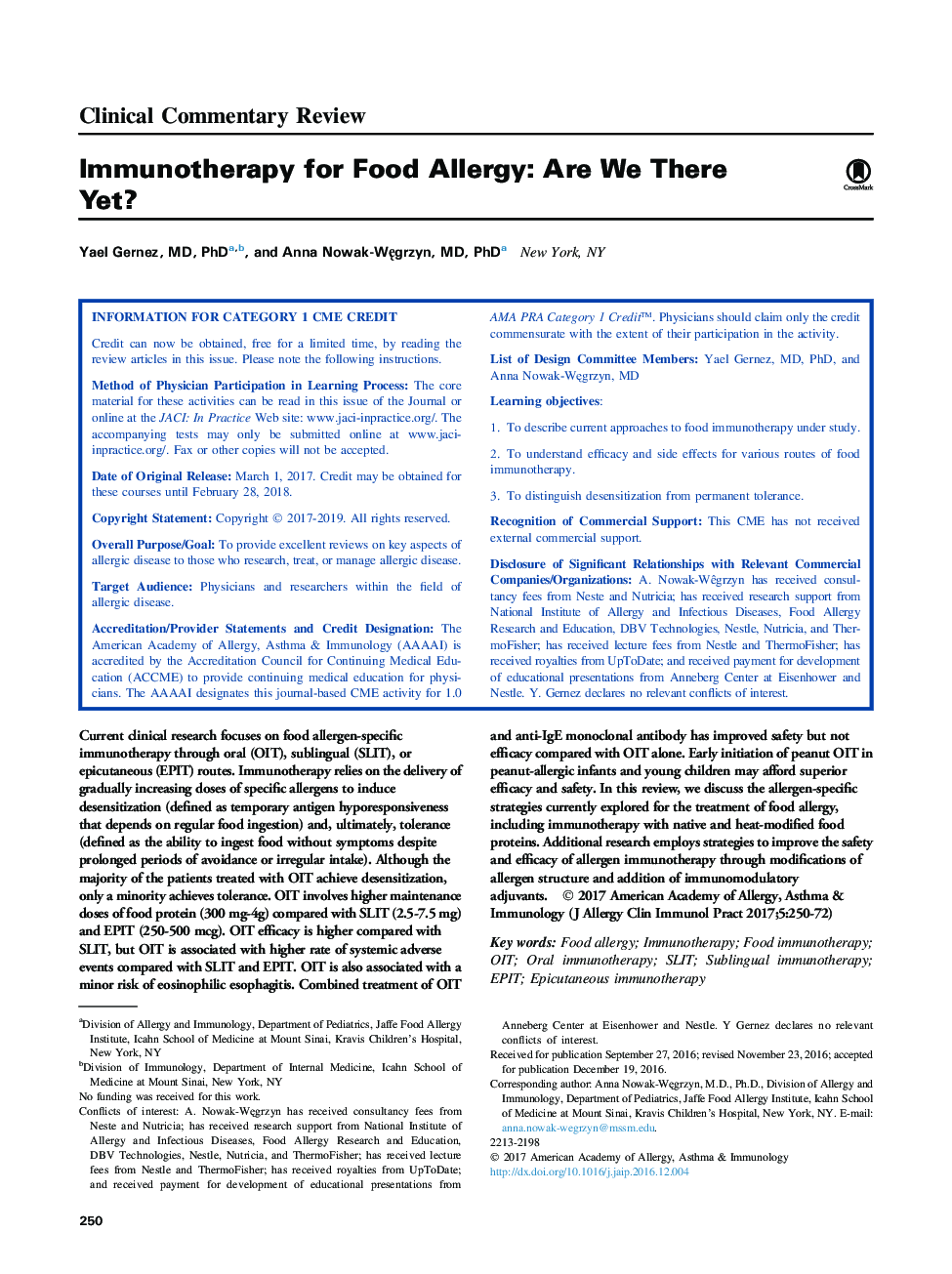| Article ID | Journal | Published Year | Pages | File Type |
|---|---|---|---|---|
| 5647360 | The Journal of Allergy and Clinical Immunology: In Practice | 2017 | 23 Pages |
Abstract
Current clinical research focuses on food allergen-specific immunotherapy through oral (OIT), sublingual (SLIT), or epicutaneous (EPIT) routes. Immunotherapy relies on the delivery of gradually increasing doses of specific allergens to induce desensitization (defined as temporary antigen hyporesponsiveness that depends on regular food ingestion) and, ultimately, tolerance (defined as the ability to ingest food without symptoms despite prolonged periods of avoidance or irregular intake). Although the majority of the patients treated with OIT achieve desensitization, only a minority achieves tolerance. OIT involves higher maintenance doses of food protein (300 mg-4g) compared with SLIT (2.5-7.5 mg) and EPIT (250-500 mcg). OIT efficacy is higher compared with SLIT, but OIT is associated with higher rate of systemic adverse events compared with SLIT and EPIT. OIT is also associated with a minor risk of eosinophilic esophagitis. Combined treatment of OIT and anti-IgE monoclonal antibody has improved safety but not efficacy compared with OIT alone. Early initiation of peanut OIT in peanut-allergic infants and young children may afford superior efficacy and safety. In this review, we discuss the allergen-specific strategies currently explored for the treatment of food allergy, including immunotherapy with native and heat-modified food proteins. Additional research employs strategies to improve the safety and efficacy of allergen immunotherapy through modifications of allergen structure and addition of immunomodulatory adjuvants.
Keywords
SPTDBPCFCEoEFood immunotherapyTregOFCEPITQOLDBPCSCDSLITQuality of lifeFood allergyEoE, Eosinophilic esophagitisimmunotherapyepicutaneous immunotherapyoral immunotherapySublingual immunotherapySkin prick testGastrointestinalAllergic rhinitisOITT regulatory celladverse eventsustained unresponsivenessOral food challenge
Related Topics
Life Sciences
Immunology and Microbiology
Immunology
Authors
Yael MD, PhD, Anna MD, PhD,
